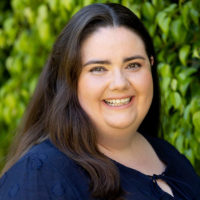Articles / 2023 flu season earlier and probably bigger


writer
General Practitioner; Co-Director, Sydney Perinatal Doctors
We’re likely to have an early onset of the flu season this year, predicts epidemiologist Professor Robert Booy.
“That’s because the Northern Hemisphere season peaked two months early in December instead of February. This means we’ve seen many more cases in January and February with Australians returning from overseas, visiting family and doing business,” he says. “They’re already seeding our community.”
The flu season could also be worse this year because of low vaccine uptake.
“Less than 50% of children under 5 were vaccinated last year so there’s a real challenge to do better this year.”
Booy reminds us that this age group are among those eligible for free influenza vaccination. Influenza vaccines can be co-administered with COVID vaccines and routine childhood vaccines, so presentations for these may be good opportunities to encourage vaccination.
He also mentions low testing rates for influenza last year as a contributing factor to this season.
“So few virus samples were collected… that it’s possible that a threatening virus hasn’t been recognised and included in the vaccine.”
For more than a decade, Professor Booy has been on the Australian Influenza Vaccine Committee, which decides what goes into the vaccines. “Every year we update the flu vaccine to cover the most recent strains that we predict will be a problem,” Booy says.
This season the flu vaccines cover two strains of Influenza A and two strains of Influenza B, but “one of the curious things is that one of the B strains is not circulating at all [now] but in case it comes back we cover it,” Professor Booy notes. He says that one of the A strains has been updated.
This year two enhanced vaccines are available for older populations: the higher dose Fluzone and the adjuvanted Fluad Quad. Either of these is appropriate for people 65 years of age and older, and patients should be guided by their clinician when choosing.
Fluzone is also indicated in patients aged 60-64 years, although not free. However, Professor Booy says this is particularly useful for patients in that age group who are “still in the workforce and don’t want to take time off work.”
Professor Booy recommends people “continue to do all the sensible things to protect themselves. This includes vaccination, but also social distancing in crowds and using a mask in indoor public spaces.”
“As the flu is already circulating it would be my suggestion to vaccinate in April rather than wait for May,” Booy advises. Protection is better in the three to four months after the vaccine is received. “A late season booster to those at high risk is not in the routine recommendation, but some clinicians may recommend it,” he says, “Getting protected at a suitable time like April should last for the whole season.”
Professor Robert Booy and Dr Sarah Chu will be speaking at Healthed’s upcoming webcast on 18 April. Register here for more practical tips to prepare for the season.

Menopausal Hormone Therapy - What Dose of Estrogen is Best?

Cardiovascular Benefits of GLP1s – New Evidence

Oral Contraceptive Pill in Teens

RSV and the Heart

writer
General Practitioner; Co-Director, Sydney Perinatal Doctors



Modified but kept in place
Eliminated entirely without replacement
Maintained as is
Completely replaced with an alternative system
Listen to expert interviews.
Click to open in a new tab
Browse the latest articles from Healthed.
Once you confirm you’ve read this article you can complete a Patient Case Review to earn 0.5 hours CPD in the Reviewing Performance (RP) category.
Select ‘Confirm & learn‘ when you have read this article in its entirety and you will be taken to begin your Patient Case Review.
Menopause and MHT
Multiple sclerosis vs antibody disease
Using SGLT2 to reduce cardiovascular death in T2D
Peripheral arterial disease
